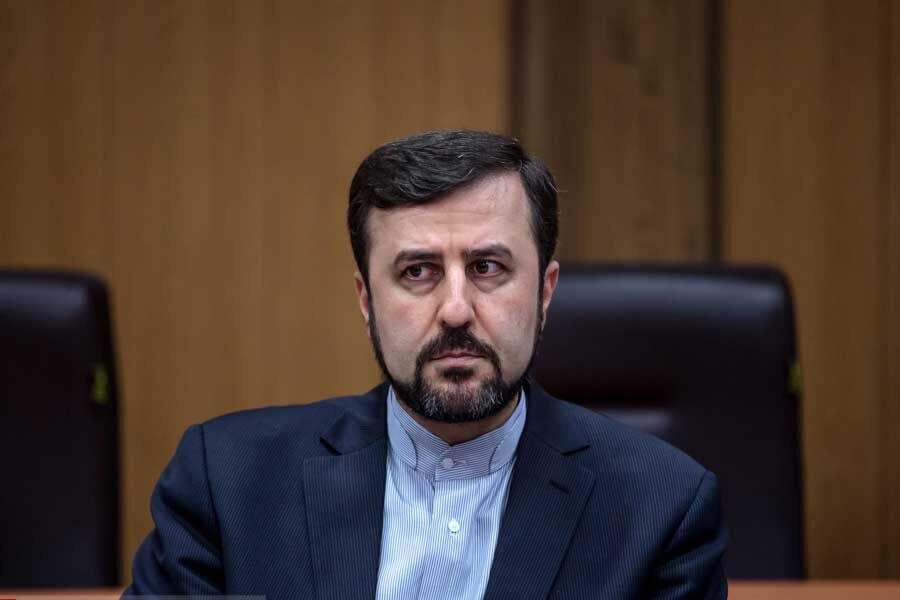Diplomat to U.S.: “Enrichment is a right not given by any country to be revoked later”

TEHRAN – Iran’s ambassador and permanent representative to the international organizations in Vienna has said that nuclear enrichment is an “inalienable right” to any country which has signed the NPT and it is not something to be “given by any country” to “be “revoked later.
“Enrichment is an inalienable right of any member, delicately affirmed in a trade-off by the NPT. This is not given by any country, only to be revoked later,” Kazem Gharibabadi tweeted on Tuesday.
The tweet by Ambassador Gharibabadi came after the White House said in a statement that "it was a mistake under the Iran nuclear deal to allow Iran to enrich uranium at any level.”
Gharibabadi said, “The USA officials positions on this issue reminds me of Obama’s remarks at Saban Forum on Dec 2013.”
Ambassador Gharibabadi posted former U.S. President Barack Obama’s remarks as follows:
“... Now, you’ll hear arguments,…that say we can’t accept any enrichment on Iranian soil. Period. Full stop. End of conversation. One can envision an ideal world in which Iran said, we’ll destroy every element and facility and you name it, it’s all gone. There are a lot of things that I can envision that would be wonderful. I can envision a world in which Congress passed every one of my bills that I put forward. But,they have already gone through the cycle to the point where the knowledge, we’re not going to be able to eliminate.”
Iranian Foreign Minister Mohammad Javad Zarif said on Monday that Iran’s low-grade enriched uranium stockpile has exceeded 300 kg. Zarif said Iran was exercising its right based on the mechanism included in the 2015 nuclear deal (JCPOA) in response to the U.S. exit from the agreement and reimposition of sanctions on Iran.
The diplomatic chiefs of the EU, France, Germany and Britain said on Tuesday they were “extremely concerned” and urged Iran to reverse its decision, according to AP.
“We urge Iran to reverse this step and to refrain from further measures that undermine the nuclear deal,” said the joint statement signed by EU diplomatic chief Federica Mogherini and the three countries’ foreign ministers – France’s Jean-Yves Le Drian, Germany’s Heiko Maas and Britain’s Jeremy Hunt.
In response, Zarif said on Tuesday that Iran will be committed to the nuclear agreement as long as the European side honors its commitments.
Under the JCPOA, Iran undertook to put limits on its nuclear program in exchange for termination of economic and financial sanctions.
“Iran is committed to the full implementation of the #JCPOA: as long as E3/EU implement THEIR economic commitments,” Zarif twitted.
Zarif added that Iran’s loyalty to the JCPOA will be commensurate to those of the Europeans, including the E3 - France, Germany and Britain which are signatory to the deal - and the rest of the European Union states.
“Iran will comply with its commitments under the JCPOA in exactly the same manner as the EU/E3 have—and will—comply with theirs. Fair enough?” Zarif insisted.
Zarif has said the decision to scale back nuclear commitments is “reversible” if Europe protects Iran from sanctions.
On May 8, Iran announced a partial withdrawal from some aspects of the nuclear pact, saying that the country would no longer adhere to some of the limits on its nuclear activities as long as sanctions are in place. It also threatened to step up uranium enrichment if an agreement is not made within 60 days to protect it from the sanctions’ effects. The deadline falls on July 7.
U.S. President Donald Trump withdrew Washington from the nuclear deal in May 2018 and ordered sanctions on Tehran. Trump has even introduced full ban on Iran’s oil export, a move which has been described as an economic war against Tehran.
So far the European Union has not taken a major step to offset U.S. sanctions against Iran. The European special purpose vehicle (INSTEX), which has been devised for trade with Iran, has been described as a “beautiful car without petrol” by Tehran’s Ambassador to the UN Majid Takht-Ravanchi.
NA/PA
